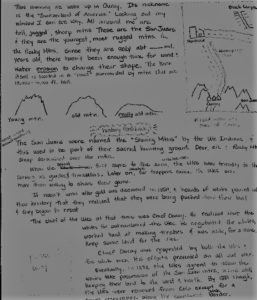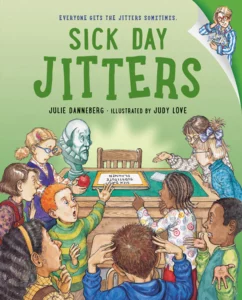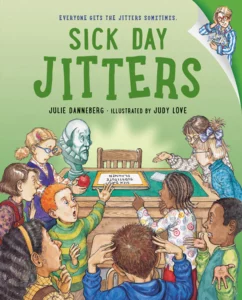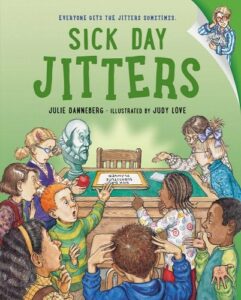
So how do you go about writing a first draft anyway?
I write fast and furious. I don’t worry about conventions, or mechanics, or spelling, or coming up with beautiful language. I don’t even worry about writing in chronological order. My only concern is getting my ideas down on paper.
If I am writing a first draft on a piece of work that I’ve been researching (and this can be fiction or nonfiction,) I set aside a chunk of time where I know I can write uninterrupted. I reread all the notes and reflections I’ve written that might inform my writing, and then I put them aside and I begin to write. I write until I run out of ideas. If I’m unsure of something, I don’t stop to look back at my notes, I just write “check this” in the margin and keep on going. If I’m writing the beginning, and all of a sudden I get a great idea for how to end the story, I write it down immediately–totally out of order– because I know that if I don’t get it down on paper, my great idea might evaporate. If I know that something I’ve just written down is awkward or choppy, I don’t stop, because it will still be awkward and choppy when its time to revise and that is when I can fix it.
Sometimes as I’m writing a first draft, it is the act of writing itself that shows me that the story isn’t fully developed in my mind and therefore I can’t get it fully down on paper. No sweat. I get down what I can, knowing that once I do that, I will just go back to the prewriting phase and do some more planning or brainstorming. So in that way, the firsts draft informs me as to where I am in the process. My first draft lets me know if I can move forward, or if I have to take a step back.
I know as I work on my first draft that some of it will be cut. And that’s okay because I know that is just how the whole writing process works for me. I know that when I’m writing fast and furious, that I’m throwing more down on the page then I’ll need. Julia Cameron, author of the writing book, The Artist’s Way, advises, “when in doubt, throw it in.” And I do. I don’t edit myself at all in my first draft. Editing and revisions are for later. First drafts are purely for getting everything you can down on paper. I think of first drafts as a riotous garden full of all kinds of flowers that will later be culled and tamed, cut and manicured. But that is for later. The first draft is just about the purity of creating. And thinking. And sometimes, joyfully putting seemingly unrelated thoughts together.
The truth is, I write way more first drafts then final drafts, and that too, is okay. I know that I don’t have to edit and revise everything I write. I know that sometimes, just writing a fabulous first draft is enough. For now.


